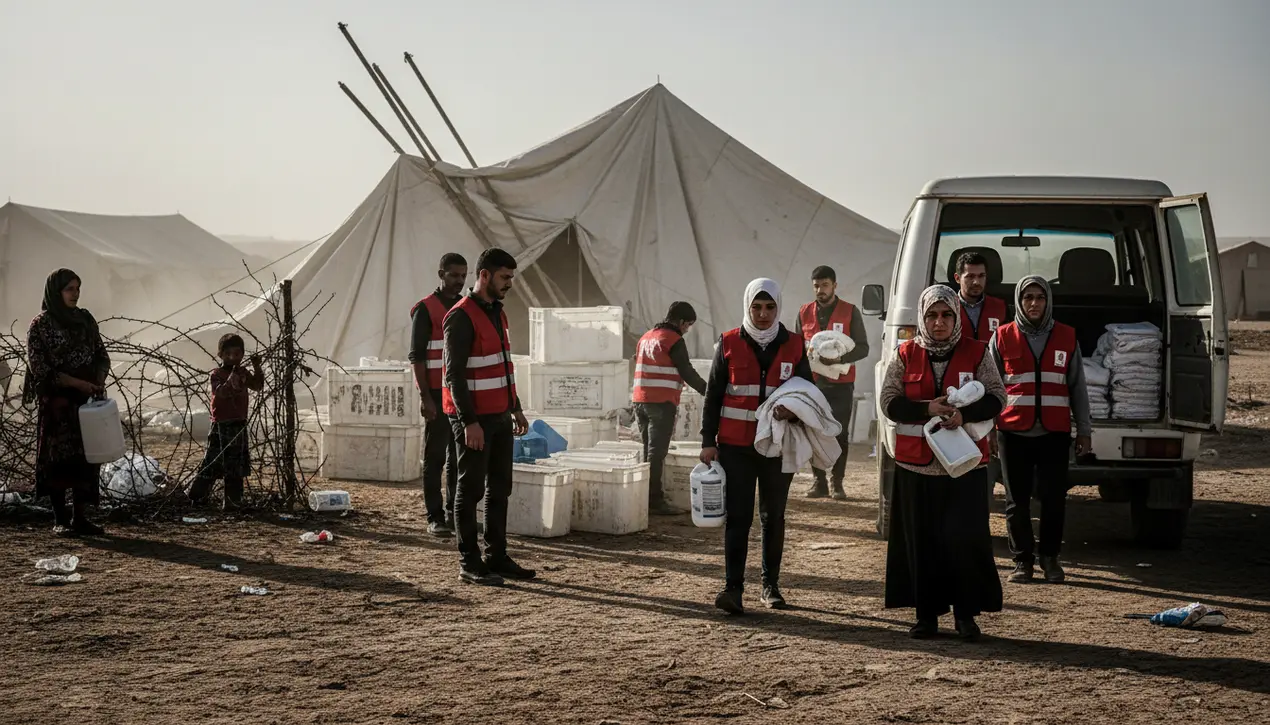
Politicshuman rightsHumanitarian Aid
Red Cross Cuts Jobs and Budget as Donors Shift to Defense.
EM
Emma Wilson
1 day ago7 min read5 comments
The International Committee of the Red Cross, a bastion of global humanitarian relief, delivered a gut-wrenching announcement on Friday, revealing a severe 17 percent budget cut that will slash its 2026 financial plan to 1. 8 billion Swiss francs and eliminate 2,900 vital jobs.This isn't merely a corporate restructuring; it's a seismic shock to the very foundations of international aid, driven by a stark and unsettling reality: donor nations are pivoting their financial resources decisively toward defense and military spending, leaving humanitarians stranded on a battlefield of scarcity. The ICRC, which operates with a mandate of neutrality and impartiality in the world's most brutal conflict zones from Gaza to Sudan and Ukraine, now faces an unprecedented funding shortfall.This forces agonizing triage decisions—heart-wrenching choices about which besieged populations will receive food, which clinics will remain open, and which displaced families will be left without shelter. The United States, historically the world's largest aid contributor, is currently overhauling its foreign spending priorities, a move that sends ripples of anxiety across the humanitarian sector and signals a broader geopolitical realignment where the calculus of security is overshadowing the imperative of compassion.This strategic shift comes at a moment of catastrophic need, with the United Nations reporting record levels of global displacement—over 114 million people forcibly uprooted—and a proliferation of intractable conflicts that show no sign of abating. The consequences of this donor retreat are not abstract; they will be measured in the quiet desperation of a mother in a makeshift camp who can no longer access clean water, or the child soldier for whom a rehabilitation program is suddenly shuttered.The ICRC's drastic measures are a desperate attempt to maintain operational integrity, but they represent a dangerous contraction of the global safety net at the precise moment it is most needed. This trend echoes the post-9/11 era, when a similar surge in defense spending saw humanitarian budgets stagnate, but the current scale is unparalleled, creating a perfect storm of rising operational costs, complex logistical challenges, and now, a evaporating pool of financial support.Veteran aid workers speak of a new era of 'humanitarian rationing,' where the principles of universal assistance are being sacrificed for bare survival. Without a concerted effort to reverse this tide, the world risks normalizing a two-tier system of crisis response, where geopolitical interests, not human suffering, dictate who is saved and who is abandoned.
#Red Cross
#job cuts
#budget reduction
#donor shift
#defense spending
#humanitarian crisis
#featured
Stay Informed. Act Smarter.
Get weekly highlights, major headlines, and expert insights — then put your knowledge to work in our live prediction markets.
Related News
Comments
Loading comments...
© 2025 Outpoll Service LTD. All rights reserved.